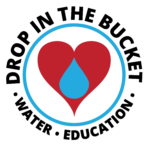Meet Lucy Acomo
You already know this story is about her. She wears an orange and blue dress in a sea of green school uniforms. In a classroom full of teenagers, she sits with a smirk on her face and an infant snuggled and snoozing against her stomach. She is Lucy Acomo. She is 43 years old. And you can tell already, she isn’t embarrassed and she isn’t ashamed — she’s excited to be in school.
Lucy was born in the Katakwi district of Uganda during a civil war in Uganda. Like too many girls of her generation — and even now — she was forced to quit school in order to take care of her family. She never even learned to read and write. And like too many girls of her generation — and even now — she was forced to marry at the age of 14 to a man she hardly knew. Her husband, Echana Paul, only received a fourth-grade education and now works security at a local hospital. Together, they have nine children, from 17-year-old Ekokor Jorem to 6-month-old Acom Pascalina, the girl slung on her in the photo. To supplement Echana’s income — and to feed her family — Lucy grows crops.
Consider, for a moment, what a day in Lucy’s life looks like. Even before she wakes at first light to make breakfast for her children and husband and make sure they get off to school and work on time, she’s up at her infant’s cries several times. Once the rest of her family is gone, she splits her time tending to her land and maintaining her household — mending and washing clothes, buying and preparing food, cleaning her home.
It would have been easy for her to feel sorry for herself, or to blame the many factors that robbed her of an education and the opportunities that come with it — her parents, her husband, her culture, her country. But she never has.
One day a couple years ago, she visited some of her children at Aputiput primary school near her home. The teachers told Lucy not only about her children’s progress, but also about a new opportunity: an adult literacy program. Parents could sit in with students and receive the education they’d been denied. Lucy signed up straight away.
But of course it isn’t in Lucy’s nature to do something for just herself, so she found work at the school as well. She has volunteered to cook lunch for the entire school for free while she attends. And she also serves as the school’s treasurer, collecting fees and distributing money to the teachers and for school maintenance.
And she can now read and write.
To her husband and children, Lucy is an inspiration. Her children, especially, have learned to love education and appreciate the opportunities that they’ve received because of her hard work. They want to go to college. They want to be lawyers and veterinarians and nurses.
And Lucy? She wants to take social science classes and become a stronger math student. At the end of each day, her wrists ache from the writing and her back aches from the fields and her feet ache from the miles she walks, but she isn’t complaining — and she isn’t slowing down. She’s never felt better.
Every day, we witness inspiring stories like Lucy’s. In sub-Saharan Africa, adults and children alike are eager to learn, are eager for better lives, but they lack the same opportunities we take for granted each day. One of the biggest obstacles in creating a fair world for all people — most especially girls in developing nations — is lack of access to clean drinking water.
All over East Africa, girls drop out of school to fetch water for their families and are relegated to lives of service instead of self-fulfillment. Water is a basic human right, essential to keeping people alive and in good health, but when coupled with education, water has the power to change the world.
